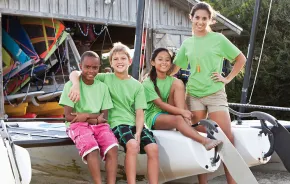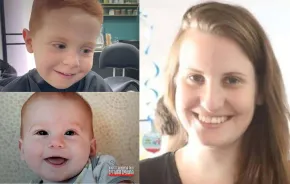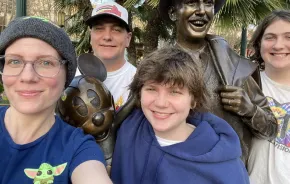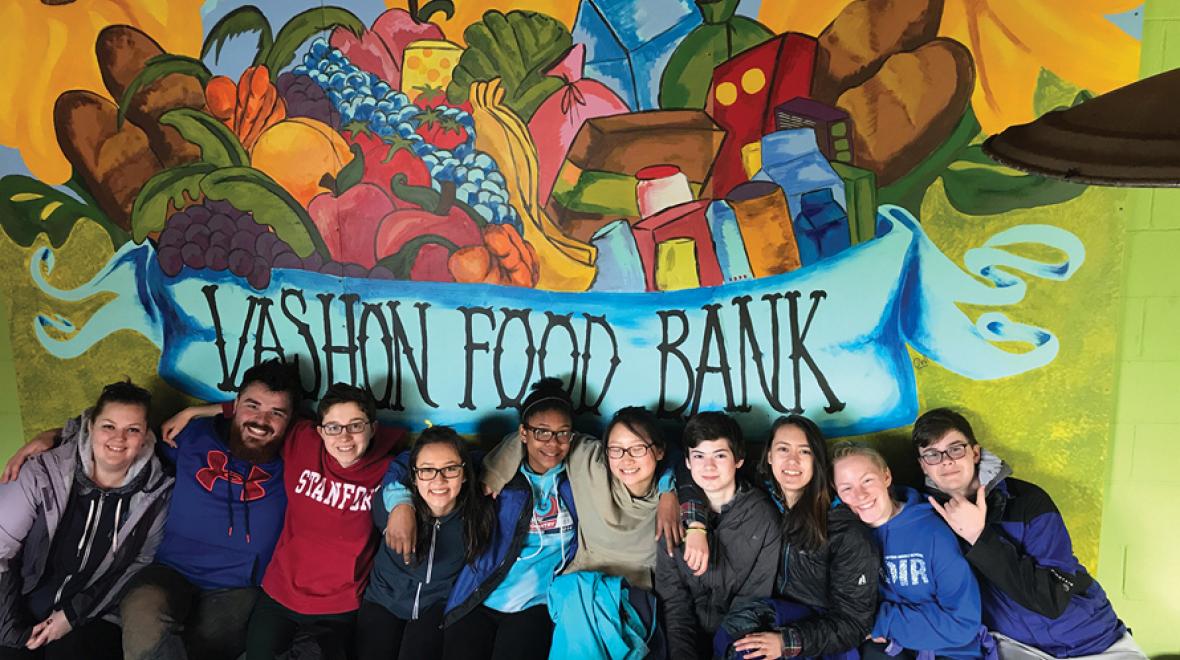
Photo:
Youth participants bond during a Camp Fire of Central Puget Sound service project.
Service — it’s an ethic we, as parents, hope to instill in our kids as they grow up. But how can we cultivate an authentic spirit and habit of giving back in today’s cultural climate, where actions are so often motivated by expected rewards of external validation? Luckily, there is a way to instill the true spirit of service while also giving recognition. Several national organizations with vital local chapters foster youth volunteering over the long term, affording kids a community of peers and mentors, a path to making a meaningful impact in the community — and kudos for their work and dedication.
Even better, youth volunteering efforts can help satisfy the service-learning component that many Washington state school districts require of their students to graduate from high school. But whether or not your child’s school mandates a set number of community service hours for graduation (some requirements range from 40 to 60 hours by completion of 12th grade), school districts in Washington state are required to have a policy in place that supports their students’ participation in community service and provides incentives for it, including the time to volunteer, academic credit or other forms of merit recognition.
The best reward? A young person involved in volunteering as a part of his or her routine has a greater chance of maintaining that civic-minded habit into adulthood.

YMCA
The YMCA maintains a respected lineup of youth summer camps, but did you know that the organization offers year-round programs to build on that love for camp while instilling leadership skills and values to boot? YMCA Camp Director Joe Andrews explains one such program that he manages, the pathway to becoming a paid staff counselor at Camp Orkila on Orcas Island. “I can’t count the number of 16- and 17-year-olds who say they’ve wanted to do this since they were 9!” he says of aspiring camp counselors. “It’s cool to see kids share why they want to positively impact the lives of others.”
The program is demanding: Students apply to the counselor intern program as they would a job, then spend two summers training before possibly being hired as a staff member. Programming during the school year keeps the community of interns and counselors-in-training working together on service projects locally and via maintenance projects at the Orkila campsite; participants earn as many as 100 service hours in the process.
Camp Fire
Camp Fire Another camp-based program with year-round activities for kids is Camp Fire. Camp Fire’s highest honor for high school students, the WoHeLo Award (“WoHeLo” stands for Work, Health and Love, the core values of the organization since its founding in 1910), is bestowed on young participants who, over the course of two years, complete an intensive and highly individualized project that develops leadership, service and advocacy skills.
“A teen will choose an issue or cause over a onetime thing,” explains Rebecca Bobko, director of community programs for Camp Fire of Central Puget Sound. Most youths who are pursuing a WoHeLo Award have grown up in Camp Fire, and have observed older kids undertaking the process. “The kids have been involved in service work before, but are now in the driver’s seat and get to choose what to advocate,” says Bobko. “The advocacy part must include teaching, speaking out, leading and serving.” A youth might organize and promote an activity at their school or give back to Camp Fire through planning an event, such as a You & Me Camp at Camp Fire’s Camp Sealth on Vashon Island. “It’s not an easy award to earn,” says Bobko. “We’ve had kids start and not finish.” But clearly, the journey of service is its own ultimate reward.
Girl Scouts of the United States of America
Girls involved in Girl Scouts can begin earning merit badges for service as early as kindergarten. In fourth grade, participants can begin work to achieve the organization’s highest honors, the Bronze, Silver and Gold awards, which are organized by age group as girls progress through school and are then awarded to a troop as a whole. “The troop chooses a problem to solve, they research a solution and then spread the word,” says Stefanie Ellis, director of marketing and communications for Girls Scouts of Western Washington (girlscoutsww.org). “And the solution needs to be sustainable.”
One Silver-award-winning troop from Bothell shares its story. “Some of our classmates worry about food,” says Amelie, 14, of Troop 44043. “The problem to solve was access to healthy, organic food.” The troop (which also includes members Chloe, Katie and Julie) researched options and ideas for a portable, effective and affordable self-build greenhouse design, one small enough for apartment dwellers to use on a porch or near a window.
Using proceeds from selling Girl Scout Cookies and a grant from the Society of Women Engineers, the girls were able to create prototypes, construct a final sample greenhouse, design and print how-to flyers, and conduct a final workshop for residents of an apartment complex.
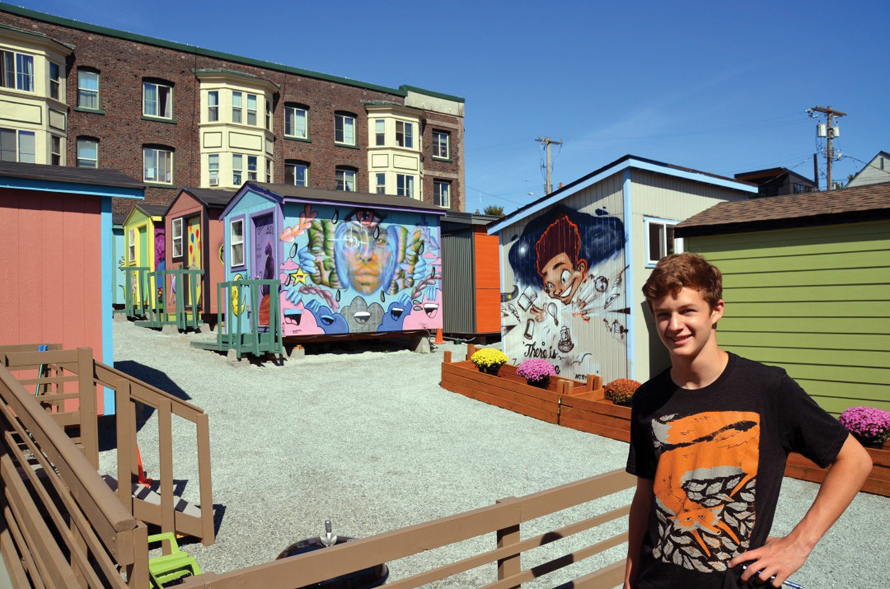
Boy Scouts of America (Scouts BSA)
The Boy Scouts of America (which now welcomes girls, too) is a long-standing service-based organization for kids. Like Girl Scouts, Scouts BSA participants earn merit badges through service, the highest merit being the Eagle Scout badge, an award that is the result of many hours of service, not just a single project.
The experiences of two Seattle-area youths provide good examples of how scouts identify an area of need and work to find a way to provide a long-term solution. To shelter a homeless member of our community, Ben Normann, 16, of Troop 166, built a tiny house for installation in the Tiny Cabins Safe Harbor Interbay Village; the structure, which was constructed with the help of 32 volunteers and funded with nearly $3,000 in donations, was completed this past January.
Finn Pettit, 17, of Troop 100, built a 50-foot boardwalk segment as part of a trail improvement project in Discovery Park.
Both scouts worked with adult mentors and local agencies to steward their projects. They raised money, procured material donations and organized volunteers. And how has this service changed their lives? “I hope to build another tiny house between my senior year and college,” says Normann.
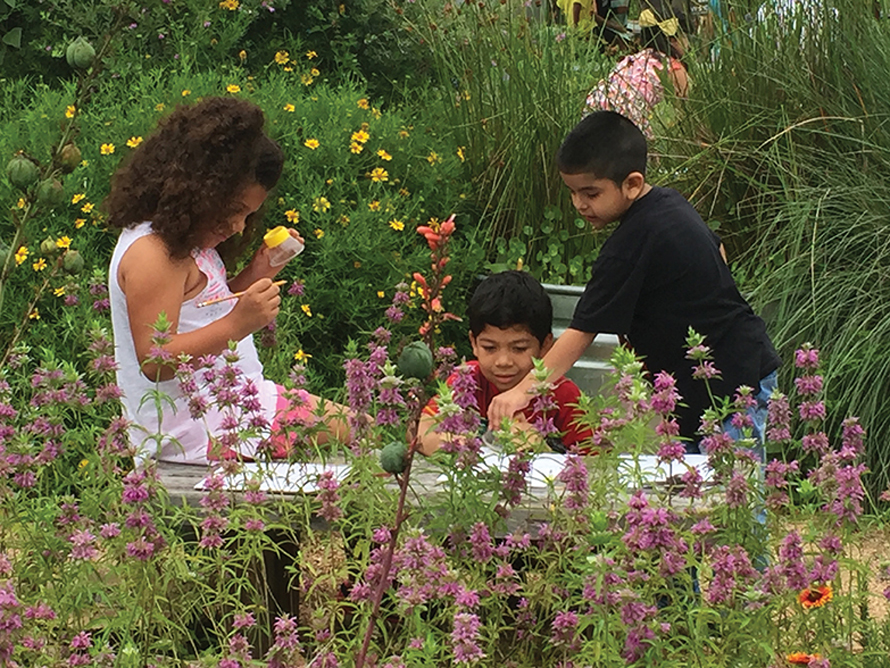
National Wildlife Federation
For tweens and younger kids looking to start a sustainable service project, the National Wildlife Federation (NWF; nwf.org) offers a nationally recognized NWF Wildlife Habitat certificate through its Kids Garden for Wildlife program. “Certificates are their jam!” says Courtney Sullivan, senior manager for the organization’s western regional education programs.
Children as young as toddlers can initiate (with help from a parent, caregiver or teacher) the planting and maintenance of a small habitat garden to attract wildlife to an urban setting. Not only does a certified space join the national registry of such critical corridors of urban habitat, but the child earns a plaque to display and credit for service hours, either through their school or NWF.
Editor's note: This article was published in 2019 and has been updated for 2022.








